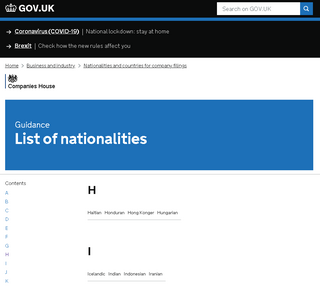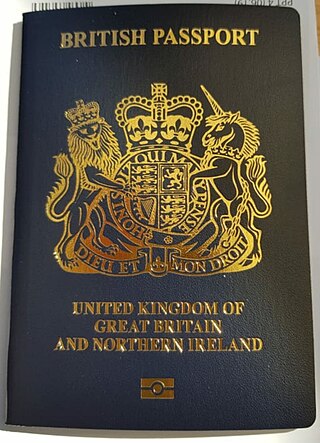| Total population | |
|---|---|
| 19,909 (in December, 2023) [1] | |
| Regions with significant populations | |
| Tokyo · Osaka | |
| Languages | |
| Japanese · English · Welsh · Scottish Gaelic · Scots · Hong Kong Cantonese | |
| Religion | |
| Predominantly Christianity, Minority : Buddhism and Shinto | |
| Related ethnic groups | |
| British diaspora |
Britons in Japan make up one of the slightly larger foreign resident communities in Japan.
As of December 2023, according to data released by the Ministry of Justice Immigration Bureau, there were 19,040 people from the United Kingdom who were classified as either permanent or long-term residents in Japan. [1]
As Hong Kong was once a British colony, even after its return to China, its residents still hold British Nationals (Overseas) (abbreviation: BN(O)) passports, and as British citizens, they are allowed to live in Japan. It is possible to enter and stay in the country. Statistically, they are included in the British population and are not distinguished from non-BN(O) British citizens.
The British Chamber of Commerce in Japan is an independent non-profit organisation that promotes trade and networking opportunities for member firms and business professionals living and working in Japan.
The British School in Tokyo provides an English language based educational curriculum for students of over 50 different nationalities. The school serves a number of children of British heritage living in the city.

The demographics of Japan include Japanese population, birth and death rates, age distribution, population density, ethnicity, education level, healthcare system of the populace, economic status, religious affiliations, and other aspects regarding the population. According to the United Nations, the population of Japan was roughly 124.9 million people, which peaked at 128.1 million people in 2010. It the 3rd-most populous country in the Asia-Pacific region, and the 11th-most populous country in the world.
Racism in Japan comprises negative attitudes and views on race or ethnicity which are held by various people and groups in Japan, and have been reflected in discriminatory laws, practices and actions at various times in the history of Japan against racial or ethnic groups.

Indefinite leave to remain (ILR) is an immigration status granted to a person who does not hold the right of abode in the United Kingdom (UK), but who has been admitted to the UK without any time limit on their stay and who is free to take up employment, engage in business, self-employment, or study. When indefinite leave is granted to persons outside the United Kingdom it is known as indefinite leave to enter (ILE).

Little Tokyo, also known as Little Tokyo Historic District, is an ethnically Japanese American district in downtown Los Angeles and the heart of the largest Japanese-American population in North America. It is the largest and most populous of only three official Japantowns in the United States, all of which are in California. Founded around the beginning of the 20th century, the area, sometimes called Lil' Tokyo, J-Town, Shō-Tōkyō (小東京), is the cultural center for Japanese Americans in Southern California. It was declared a National Historic Landmark District in 1995.

British National (Overseas), abbreviated BN(O), is a class of British nationality associated with the former colony of Hong Kong. The status was acquired through voluntary registration by individuals with a connection to the territory who had been British Dependent Territories citizens (BDTCs) before the handover to China in 1997. Registration for BN(O) status was limited to the 10-year period preceding the transfer as a transitional arrangement for former BDTCs; current residents cannot newly acquire this nationality.

The Hong Kong Special Administrative Region Passport is a passport issued only to permanent residents of Hong Kong who also hold Chinese citizenship. In accordance with the Basic Law of the Hong Kong Special Administrative Region, since the transfer of sovereignty on 1 July 1997, the passport has been issued by the Immigration Department of the Government of Hong Kong under the authorisation of the Central People's Government of the People's Republic of China. As the official languages of Hong Kong are Chinese and English, the passport is printed bilingually in both Chinese and English. In addition, unlike Chinese passport which can be issued by Chinese consulates abroad, the Immigration Department is the only issuing authority for HKSAR passports.

British nationality law as it pertains to Hong Kong has been unusual ever since Hong Kong became a British colony in 1842. From its beginning as a sparsely populated trading port to today's cosmopolitan international financial centre and world city of over seven million people, the territory has attracted refugees, immigrants and expatriates alike searching for a new life.

A British passport is a travel document issued by the United Kingdom or other British dependencies and territories to individuals holding any form of British nationality. It grants the bearer international passage in accordance with visa requirements and serves as proof of citizenship. It also facilitates access to consular assistance from British embassies around the world. Passports are issued using royal prerogative, which is exercised by His Majesty's Government; this means that the grant of a passport is a privilege, not a right, and may be withdrawn in some circumstances. British citizen passports have been issued in the UK by His Majesty's Passport Office, an agency of the Home Office, since 2014. All passports issued in the UK since 2006 have been biometric.
Foreign-born people are those born outside of their country of residence. Foreign born are often non-citizens, but many are naturalized citizens of the country in which they live, and others are citizens by descent, typically through a parent.
Britons never made up more than a small portion of the population in Hong Kong, despite Hong Kong having been under British rule for more than 150 years. However, they did leave their mark on Hong Kong's institutions, culture and architecture. The British population in Hong Kong today consists mainly of career expatriates working in banking, education, real estate, law and consultancy, as well as many British-born ethnic Chinese, former Chinese émigrés to the UK and Hong Kongers who successfully applied for full British citizenship before the transfer of sovereignty in 1997.
Suffrage, the right to vote, is often extended to non-citizens. This right varies widely by place in terms of which non-citizens are allowed to vote and in which elections, though there has been a trend over the last 30 years to enfranchise more non-citizens, especially in Europe.

Japanese people in Hong Kong consist primarily of expatriate business people and their families, along with a smaller number of single women. Their numbers are smaller when compared to the sizeable presence of American, British, and Canadian expatriates. As of 2010, 21,518 Japanese people had registered as residents of Hong Kong with the Japanese consulate there. Hong Kong also remains a popular destination for Japanese tourists on their way to Mainland China; in 2004, the Japanese consulate reported the arrival of more than one million Japanese tourists.

The Exit & Entry Permit for Taiwan, Republic of China is the document for the bearer to enter into and/or depart from the Taiwan Area, namely Taiwan, Penghu, Kinmen and Matsu. Currently, there are several types of Exit & Entry Permit that reflect the bearer's residency status. The permit is issued by the National Immigration Agency of the Republic of China (Taiwan). For different purposes, the permit is also known as:

Japanese in the United Kingdom include British citizens of Japanese ancestry or permanent residents of Japanese birth or citizenship, as well as expatriate business professionals and their dependents on limited-term employment visas, students, trainees and young people participating in the UK government-sponsored Youth Mobility Scheme.
Americans in Japan are citizens of the United States residing in Japan. As of December 2023, there were 63,408 American citizens registered as foreign residents of Japan, forming 2.0% of the total population of registered aliens, according to statistics from Japan's Ministry of Justice. This made Americans the ninth-largest group of foreign residents in Japan, having been surpassed in number by Vietnamese residents, Nepalese residents, Indonesian residents, and Burmese residents since 2011.

The Embassy of Japan in London is the diplomatic mission of Japan in the United Kingdom. The embassy occupies a large Victorian building on Piccadilly opposite Green Park, which is Grade II listed. It was once the former Junior Constitutional Club, which was the first building in London to have its exterior entirely clad in marble.

The primary law governing nationality in the United Kingdom is the British Nationality Act 1981, which came into force on 1 January 1983. Regulations apply to the British Islands, which include the UK itself and the Crown dependencies, and the 14 British Overseas Territories.

A Mexican visa is a document issued by the National Institute of Migration, dependent on the Secretariat of the Interior, with the stated goal of regulating and facilitating migratory flows into the country.

The British National (Overseas) passport, commonly referred to as the BN(O) passport, is a British passport for people with British National (Overseas) status. BN(O) status was created in 1987 after the enactment of Hong Kong Act 1985, whose holders are permanent residents of Hong Kong who were British Overseas Territories citizens until 30 June 1997 and had registered as BN(O)s.

The British Embassy, Tokyo is the chief diplomatic mission of the United Kingdom in Japan, with the Ambassador of the United Kingdom to Japan being the chief of mission. The embassy compound measures about 35,000 m2, located at No 1 Ichibanchō, Chiyoda-ku, Tokyo, to the west of the Imperial Palace, and separated from the latter by a moat.